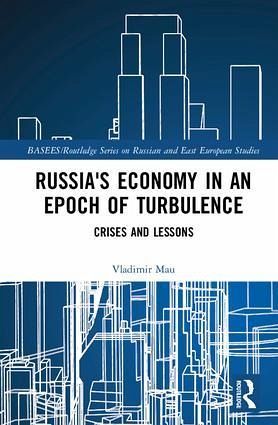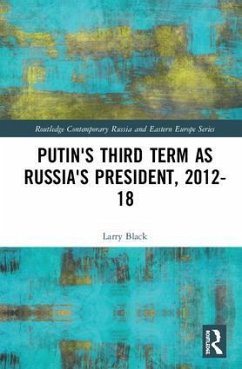
Russia's Economy in an Epoch of Turbulence
Crises and Lessons
Versandkostenfrei!
Versandfertig in 1-2 Wochen
195,99 €
inkl. MwSt.
Weitere Ausgaben:

PAYBACK Punkte
98 °P sammeln!
This book traces the logic of the development of the crises and the anti-crisis policies, and demonstrates how perceptions of the priorities for economic policy, and the problems of economic growth and the formation of a new model and its alternatives were formed and how they changed.













